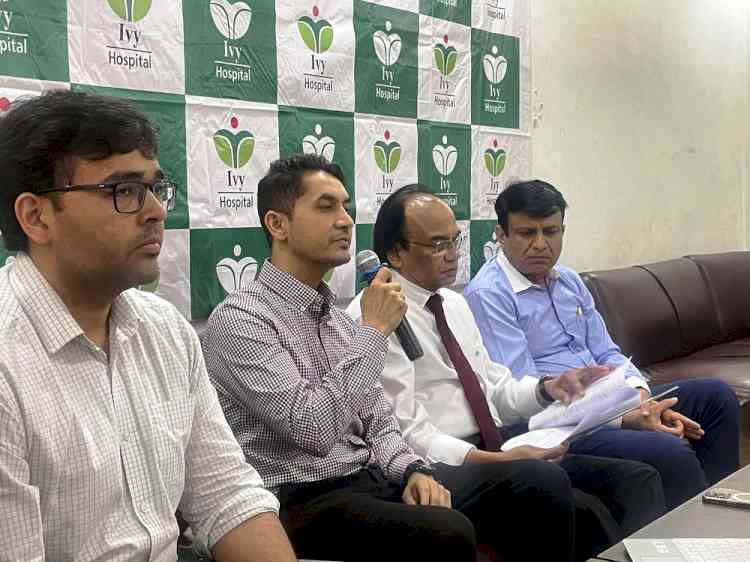UHF Nauni to host National Symposium on Alternative Approaches in Plant Health Management
Author(s): City Air NewsThe Department of Plant Pathology at Dr YS Parmar University of Horticulture and Forestry, Nauni, will host a National Symposium on the theme ‘Alternative Approaches in Plant Health Management for Enhancing Farmers'...

The Department of Plant Pathology at Dr YS Parmar University of Horticulture and Forestry, Nauni, will host a National Symposium on the theme ‘Alternative Approaches in Plant Health Management for Enhancing Farmers' Income’ at the University campus on November 2-3, 2018. The symposium is being held under the aegis of Indian Phytopathological Society and Himalayan Phytopathological Society.
Professor VL Chopra, Former Member Planning Commission and ex Director General ICAR will be the Chief Guest and Dr Sanjay Kumar, Director CSIR, IHBT Palampur will be the Guest of Honour. The symposium will focus Alternative Approaches in Plant Health Management. Eminent scientists from different parts of the country will speak on key issues in Plant Health Management. The two-day event will see over 260 scientists and students from Himachal, Punjab, Haryana, Gujarat, Rajasthan, Karnataka, West Bengal, New Delhi, Uttar Pradesh, Jammu and Kashmir, Uttarakhand, Arunachal Pradesh, Madhya Pradesh and Telangana attending the symposium.
"The symposium will address emerging issues related to molecular diagnosis, eco-friendly approaches, plant nutrition and biotic stresses, induced resistance and management of plant health problems in order to develop guidelines for future research in India as a step forward for doubling the farmers’ income by 2022,” said Dr. Satish Sharma, Organizing Secretary of the symposium. The Prof. MJ Narasimhan Academic Merit Award and APS travel sponsorship for PhD students will also be given during the symposium.
Need for the Symposium?
The traditional agricultural approaches have given birth to problems associated with the repeated production of same crop year after year on the same piece of land, increased costs of energy-based inputs and decreased farm incomes, leading to the emergence of ecological disturbances such as poor biodiversity, soil and water pollution, and soil erosion. Further, the climatic variability is also affecting crop cultivation leading to biotic and abiotic stresses, thus leading to serious concerns for plant health management.
After the green revolution, we are continually trying to implement strategies, which help us to usher in a second green revolution with sustainability in crop production and environmental protection. Thus, there is a need to focus on alternative approaches of crop production, which help us to achieve sustainable crop production. Plant health is an important component of crop production and here also we need to reorient our crop protection strategies away from chemical pesticides which are deleterious to human health and biodiversity. These alternative approaches also gain momentum from the fact that slowly we are moving towards organic production of crops which need alternative approaches of crop protection. There are a number of alternative approaches like plant resistance, manipulation of cultural practices, use of organic amendments, use of physical approaches like soil solarization, botanical pesticides, bio-pesticides and modern molecular techniques of developing transgenic.
Organic pesticides act as a viable, economic and eco-friendly substitute for harmful chemical pesticides. There are about 1005 species of plants exhibiting insecticidal properties, 384 with antifeedant properties, 297 with repellent properties, 27 with attractant properties and 31 with growth inhibiting properties. There are more than 200 plant species, which have been reported to have anti-microbial properties against important pathogens of different crops. Currently, biopesticides constitute only 3 per cent of Indian crop protection market, however, there are significant growth opportunities as the Central Government is promoting traditional and chemical-free farming. The National Farmer Policy 2007 has also strongly recommended the promotion of bio-pesticides for increasing agricultural production, sustaining the health of farmers, consumers and other species in the environment. The Department of Plant Pathology has been a pioneer in developing eco-friendly bio-formulations, biopesticides and soil solarization since 1965.

 cityairnews
cityairnews 
















